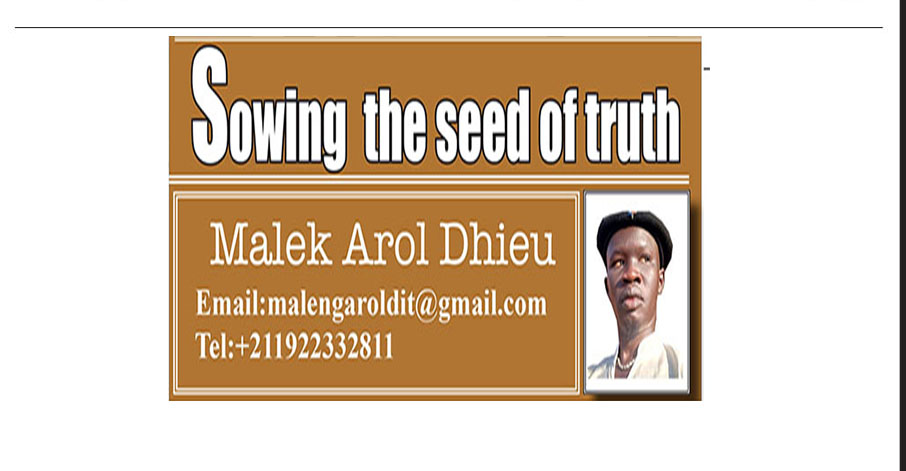By Malek Arol Dhieu
Chinua Achebe once said, when a hunter becomes a historian, history will always favour him. When you sit down with a mosquito and discuss how to eradicate malaria, what comes to your mind? What can you expect from mosquito?
Of course, the eradication of malaria is the eradication of mosquito. It is as if you are plotting an assassination, but you invite the victim to have a contribution to your strategies and tactics of the assassination. The victim will come up with contributions which favour him, and, in the end, you may dismiss the case and resort to friendship.
As you mention all it takes to eradicate malaria and give mosquito a chance to contribute, mosquito mentions all it takes to prove malaria innocent because it knows the eradication targets the causative agent, which is mosquito itself. However lengthy your discussion may be, as long as you are discussing it with a mosquito, the conclusion is always confusing.
And at the end of the day, malaria continues killing you and your children because you are as foolish as your grandfather to discuss malaria with a mosquito. Why would you discuss your enemy with his messenger? Don’t you think the messenger will bring him the news?
Every time leaders initiate a dialogue with the citizens to key out the root causes of the ever-increasing crisis, I see it like the citizens are discussing malaria with a mosquito. Leaders are the causative agents of crisis because the crisis is their source of wealth, how possible can it be for them to target the causative agent of crisis? Many leaders, if not all, initiate disarmament and after disarmament, the disarmed guns flow back to the civilians.
Because of greed for wealth, leaders again sell the disarmed guns to civilians in order to continue fighting. You see, they have killed two birds with one stone. They have received money for the guns and when civilians wage an attack against themselves, they intervene and loot them in the name of bringing the conflict to an end.
This economic crisis is too small for the government to control, but because it is why they overstay in power to enrich themselves; they instead worsen it. They complicate people’s living standards so that instead of wrestling with them over leadership, the citizens will be wrestling with the economic crisis, which is of course a giant wrestler to defeat. It may be politically simple to prosper at the expense of others, but it is inhumane to prosper at the expense of others.
I feel disheartened when I see people fighting for food at the centres where food assistance is given. Everybody is an IDP, including those staying in their own houses, but have registered and are holding green cards for food assistance. I shed tears when I see the sick seeking medical attention, but the medical services are so scarce and so, they return home with only one song in their minds: death. Of course, what prevents the sick from dying when they are not attended to?
Nothing is in place. Leaders have grown to love themselves more than the people who cast votes for them. However long the dialogue between the government and the people brings the suffering to an end, as long as greedy leaders are the ones discussing it, I see it like discussing malaria with a mosquito. Crises are malaria and leaders are mosquitoes.
As the citizens mention all it takes to control the crisis, the leaders mention all it takes to prove the crisis innocent. It becomes a win-win discussion. But at the end of the day, the crisis continues, and more citizens succumb to its consequences. So, why would malaria be discussed with a mosquito?
The author is a medical student, University of Juba.




